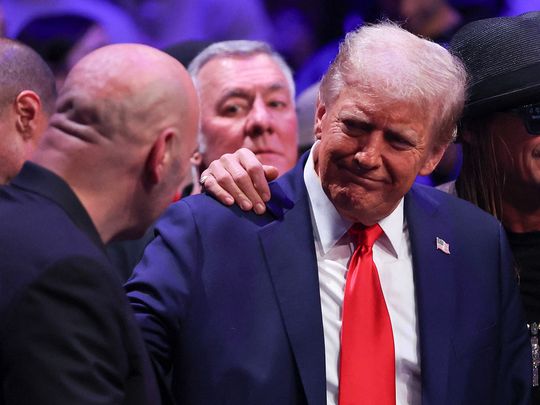
Trump’s return to the White House has reignited debates about the dynamics of American democracy. While his Electoral College win is being portrayed as a decisive mandate, the election’s margins tell a more nuanced story.
Post-election statistics reveal an intriguing detail: if just 130,000 voters had changed their minds on the way to the polls, the result could have swung in favour of Kamala Harris and the Democrats.
Yet, this narrow margin was influenced by the complexity of the US electoral system, which was designed by the Founding Fathers to accommodate a vast and diverse nation.
As a result, the final results used to take months to finalise, a delay that was largely due to the system’s reliance on the “winner-take-all” approach. Under this system, a candidate who wins a narrow margin in a state can claim all of that state’s electoral votes, regardless of how small the victory may be.
Therefore, Trump won the Electoral College, securing the presidency despite a narrow win in several states — sometimes by just a few thousand votes. Under the winner-takes-all system, this allowed him to claim all of that state’s electoral votes.
America’s internal divisions
However, only two states, Maine and Nebraska, allocate electoral votes proportionally, based on the popular vote within each congressional district, while the rest of the states follow the winner-take-all system.
Trump’s victory, therefore, was not just a result of popular support but also a consequence of these systemic dynamics. The underlying vertical political divide in the United States is still unresolved, setting the stage for deepening conflicts once the current administration’s honeymoon period concludes.
Media coverage, for example, highlights widespread dissatisfaction with Trump’s election, a sentiment that has grown with the announcement of his transition team, which includes figures some critics describe as extreme, even labelling opponents as “anti-democratic.” This discontent is likely to escalate once the administration takes office in two months, leading to further polarisation — a matter for Americans to resolve domestically.
Yet, America’s internal divisions have global repercussions. A fractured United States often translates into unpredictable foreign policy. The incoming administration seems ready to pursue an agenda that runs counter to the Democratic approach.
With a focus on reversing policies rather than evaluating them objectively, this could place the world in a precarious “yellow zone,” where instability and uncertainty dominate international relations.
In his first term, Trump relied heavily on a cadre of businessmen, many of whom had found success in their respective fields. However, governance, especially in a country as vast and complex as the United States, demands a different skill set — one that doesn’t always align with the profit-driven mindset of the private sector.
This has forced Trump to later reshuffle his cabinet members in a trial-and-error fashion, eventually returning to familiar faces from his business network. While this approach aligns with his personal style, it has raised concerns among many American commentators about whether these individuals have the leadership skills required to navigate the complexities of managing a nation with wide-ranging global interests.
Governance, critics argue, cannot be managed like a profit-and-loss enterprise. Beyond questions of competence, there are also growing concerns about potential conflicts of interest, especially given Mr. Trump’s vast business empire, which overlaps with several areas of central government operations.
Looking ahead, the next phase of the administration’s policies remains largely opaque, especially in terms of foreign relations. Media agencies have been highlighting controversial statements from key figures within the new administration — remarks that some interpret as extreme and divisive.
Genocide and mass starvation
While some argue that these views may not necessarily define official policy, others caution that deeply held political beliefs rarely change once individuals assume high office.
This uncertainty extends beyond domestic concerns, especially in the Middle East, where the situation is becoming increasingly precarious. Without a clear and just resolution to the Palestinian issue, the region will likely remain a volatile source of anger and frustration.
The ongoing devastation in Gaza, widely viewed as a humanitarian crisis, has sparked international outrage, with many drawing comparisons to genocide and mass starvation — tragedies that continue to stir the global conscience.
The recent Arab summit in Riyadh stands out as a pivotal moment, showcasing Saudi Arabia’s diplomatic efforts to forge an international coalition in support of a two-state solution. This initiative appears to have gained support from the new administration, with Saudi Arabia’s position playing a pivotal role in advancing this core idea on the global stage.
Guided by a deeply rooted conviction, the Kingdom’s leadership firmly believes that justice for the Palestinians is not merely a regional necessity but a global imperative. Without it, the Middle East will remain a simmering cauldron of unrest, its stability perpetually fragile.
Despite counter-media narratives, it is Saudi Arabia’s political stance, mobilising peace-loving nations toward the most rational solution, that holds the potential to silence the cannons and pave the way for long-overdue development.
Mohammad Alrumaihi is an author and Professor of Political Sociology at Kuwait University




_resources1_16a45059ca3_small.jpg)





